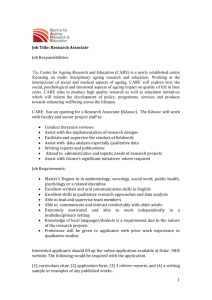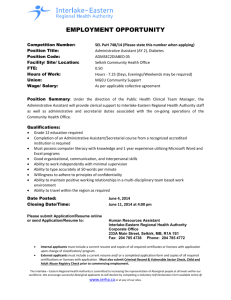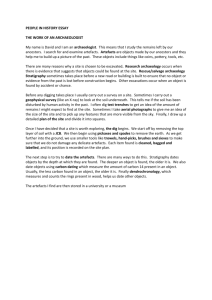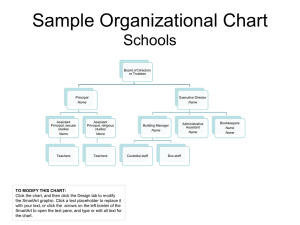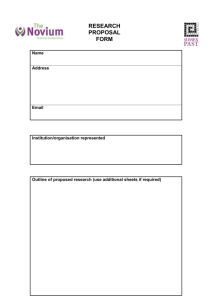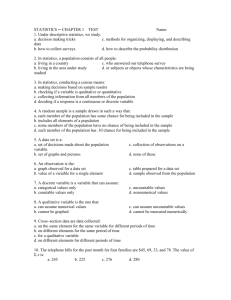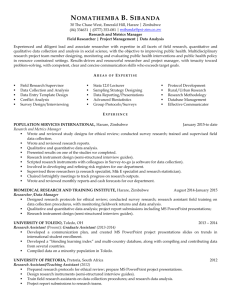Exploring the Artefacts within an Initial Teacher Education Programme
advertisement
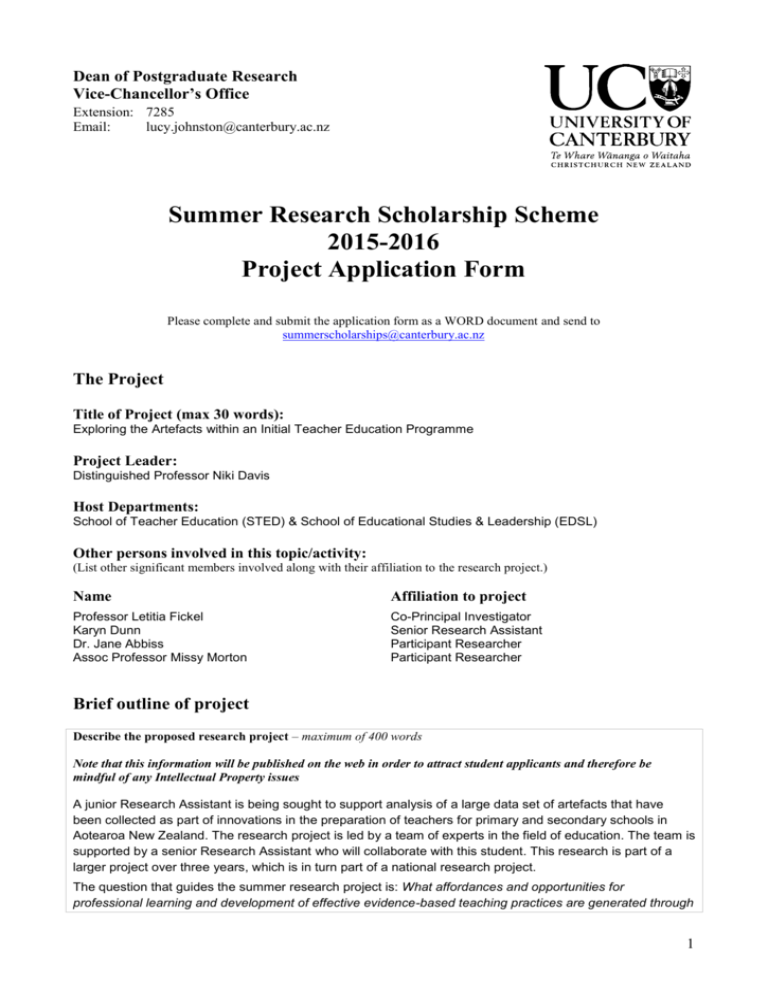
Dean of Postgraduate Research Vice-Chancellor’s Office Extension: 7285 Email: lucy.johnston@canterbury.ac.nz Summer Research Scholarship Scheme 2015-2016 Project Application Form Please complete and submit the application form as a WORD document and send to summerscholarships@canterbury.ac.nz The Project Title of Project (max 30 words): Exploring the Artefacts within an Initial Teacher Education Programme Project Leader: Distinguished Professor Niki Davis Host Departments: School of Teacher Education (STED) & School of Educational Studies & Leadership (EDSL) Other persons involved in this topic/activity: (List other significant members involved along with their affiliation to the research project.) Name Affiliation to project Professor Letitia Fickel Karyn Dunn Dr. Jane Abbiss Assoc Professor Missy Morton Co-Principal Investigator Senior Research Assistant Participant Researcher Participant Researcher Brief outline of project Describe the proposed research project – maximum of 400 words Note that this information will be published on the web in order to attract student applicants and therefore be mindful of any Intellectual Property issues A junior Research Assistant is being sought to support analysis of a large data set of artefacts that have been collected as part of innovations in the preparation of teachers for primary and secondary schools in Aotearoa New Zealand. The research project is led by a team of experts in the field of education. The team is supported by a senior Research Assistant who will collaborate with this student. This research is part of a larger project over three years, which is in turn part of a national research project. The question that guides the summer research project is: What affordances and opportunities for professional learning and development of effective evidence-based teaching practices are generated through 1 the implementation of the programme innovations? The majority of the work will involve documentary analysis of media that have already been archived. This has the advantage that it may be possible to negotiate flexible working conditions. Although all identifying information has been removed from the artefacts highly ethical behaviour is expected and required; educational research demands high vigilance with respect to ethics. Other tasks are likely to include supporting and collaborating with other members of the research team, applying software suited to qualitative research, and support for data management. The experiences and skills are highly relevant to research degrees in many disciplines. Work on this interdisciplinary research project will result in research skills and experience that is highly transferable to other fields in the social sciences and arts, including commerce and business. The research aims to benefit teaching and learning in the University, the nation and teacher education worldwide. It fits well with UC’s vision to graduate people prepared to make a difference. If the project involves work away from the University campus (e.g., at fieldwork sites) please detail all locations. No off campus work If the student be required to work outside of normal university hours (8am-5pm) please provide details No work expected outside office hours; some flexitime may be negotiable. 327/400 words Benefits student will gain from involvement in the project Describe the research experience and skills that the student will acquire through involvement in this research project – maximum of 100 words. As a Research Assistant in a team, you will develop qualitative research skills through analysing archived artefacts for trends and themes. Work to identify innovative characteristics of a teacher education programme will lead to a deeper appreciation of culture, diversity and inclusion. Hence, you will gain experience and transferable skills in qualitative research in a project that illustrates the quality and depth of information available through analysis of a variety of data types. In addition, you will gain experience in report writing to a publishable standard. An outstanding junior Research Assistant could become a junior author of a professional publication. 100/100 words Specific student requirements Please provide details of all requirements you have for the student to work on this project – for example, if specific courses/experience are necessary. A high standard of academic writing, ethics and analytical skills. An appreciation of indigenous cultures and values, e.g. Māori. An appreciation of the research process, including qualitative approaches. Preference may be given to applicants who are able to demonstrate this with an assignment(s) or project using a qualitative methodology. Although not required, preference will be given to applicants with some understanding of education and/or teaching. This may be exhibited by a grade in a relevant University course and/or experience in supporting learning and teaching of others. 2
